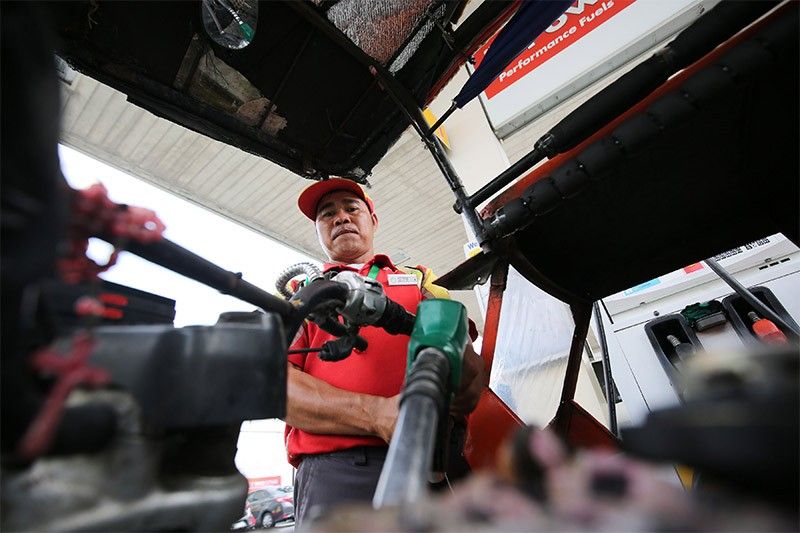DOE says oil firms may face charges for unreasonable price adjustments

MANILA, Philippines — Oil companies may face charges if their price adjustments are proven to be unreasonable, an energy official said Wednesday.
Energy Assistant Secretary Leonido Pulido III said the decrease in the prices of gasoline and diesel to be implemented by oil firms are lacking compared to his agency's estimates. He said the difference between the adjustments of oil firms and the Energy department's estimates are P0.22 per liter for gasoline, and P0.06 per liter for diesel.
The upward adjustment in the prices of liquefied petroleum gas, meanwhile, was higher by about P0.25 per kilo than what the Energy department projected.
"If we believe that either the rollback or the increase — rollback for liquid petroleum products and the increase in LPG — is unreasonable then we will refer it to the DOE–DOJ (Department of Energy - Department of Justice) task force to study the possibility of filing either administrative or criminal cases against these companies," Pulido said in a press briefing in Malacañan.
"Of course, until now, we are still hoping that their adjustments are correct," he added.
Pulido said the DOE has asked oil firms to explain how they computed the downward adjustments.
"We are not saying they are wrong but we want to give them the opportunity to explain to us why it was like that," the energy official said.
Pulido noted that the oil industry in the Philippines is deregulated so the government could not dictate the prices of fuel products on companies.
"However, a task force called the DOE–DOJ Task Force has the authority to investigate anti-competitive practices," he said.
Last Monday, oil firms said they would roll back gasoline prices by P1.45 per liter, diesel prices by P0.60 per liter and P1 per liter for kerosene. They also announced a P4.50 per kilogram hike in cooking gas prices and P2.50 per liter increase in auto LPG prices.
Pulido also said the attacks in Saudi Arabia won't have an effect on oil prices in the next 26 days.
"Since they (Saudi Arabia) are online and only 50 percent of their capacity is affected, we would expect a continuous supply even beyond 26.8 days," he said.
"That’s why we are calling our stakeholders, the oil companies and asking them not to take advantage of it, precisely because Saudi Arabia has already declared that they will be online by October, they will be back to normal operations."
- Latest
- Trending






























